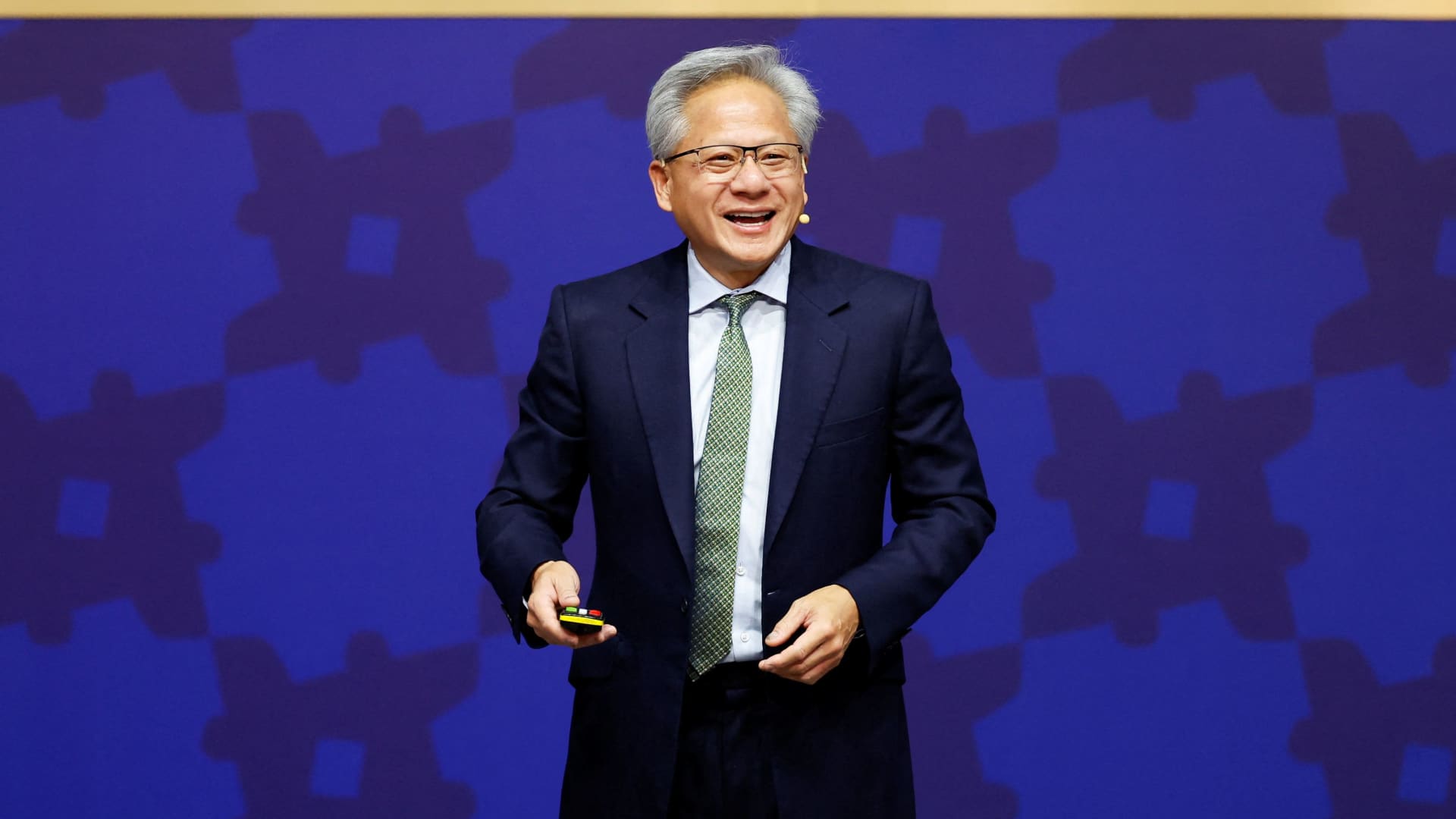Jensen Huang, CEO of Nvidia, reacts during the 2025 Asia-Pacific Economic Cooperation (APEC) CEO Summit in Gyeongju, South Korea, October 31, 2025.
Kim Soo-hyeon | Reuters
Arm on Monday said that central processing units based on its technology will be able to integrate with AI chips using Nvidia’s NVLink Fusion technology.
The move will make it easier for customers of both companies who prefer a custom approach to their infrastructure — namely hyperscalers —to pair Arm-based Neoverse CPUs with Nvidia’s dominant graphics processing units.
It’s the latest example of Nvidia using dealmaking to partner with nearly every major technology company as it finds itself at the center of the AI industry. The announcement signals that Nvidia is opening up its NVLink platform to integrate with a wide variety of custom chips, instead of forcing customers to use its CPUs.
Nvidia currently sells an AI product called Grace Blackwell that pairs multiple GPUs with an Nvidia-branded Arm-based CPU. Other configurations include servers that use CPus from Intel or Advanced Micro Devices.
But Microsoft, Amazon and Google are all developing or deploying Arm-based CPUs in their clouds to give them more control over the set ups and reduce their costs.
Arm doesn’t make CPUs but it licenses its instruction set technology that those chips need. The company also sells designs that allow partners to more quickly build Arm-based chips.
As part of Monday’s announcement, Arm said that custom Neoverse chips will include a new protocol that’ll allow them to move data seamlessly with GPUs.
The CPU has historically been the most important part in a server. But generative AI infrastructure is based around the AI accelerator chip, which in most cases is an Nvidia GPU. As many as eight GPUs can be paird with a CPU in an AI server.
In September, Nvidia said it would invest $5 billion into Intel, the leading CPU maker. A key part of the deal was to enable Intel CPUs to integrate into AI servers using Nvidia’s NVLink technology.
Nvidia reached an agreement to buy Arm for $40 billion in 2020, but the deal failed in 2022 because of regulatory issues in the U.S. and U.K. Nvidia had a small stake in Arm, which is majority-owned by Softbank, as of February.
Meanwhile, Softbank liquidated its entire stake in Nvidia earlier this month and Softbank is backing the OpenAI Stargate project, which plans to use Arm technology in addition to chips from Nvidia and AMD.
WATCH: Nvidia’s options pricing can swing 6-7% in either direction, says Susquehanna’s Murphy






